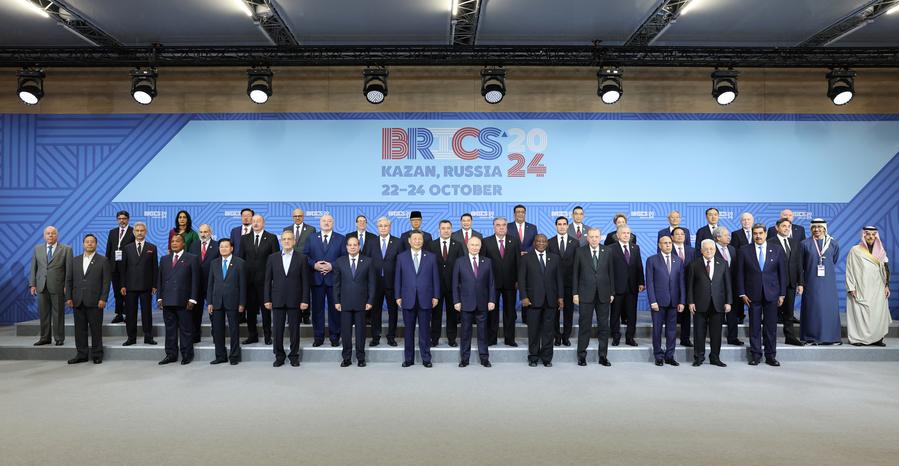Xi Jinping champions the cause of Global South


COLLECTIVE RISE
"The collective rise of the Global South is a distinctive feature of the great transformation across the world," Xi observed when addressing the "BRICS Plus" Dialogue held in Kazan, Russia, in October last year.
Much more than a pure geographical or economic term, the Global South refers to a community of emerging markets and developing countries that share similar historical experiences, development stages and goals, and political pursuits.
The concept of "South" was first coined in Antonio Gramsci's work "The Southern Question" written in 1926, in which the Italian Marxist philosopher highlighted the development gap between northern and southern Italy.
The rise of the Global South has been decades in the making. Back in 1955, the landmark Bandung Conference convened in Indonesia under the flag of solidarity, friendship and cooperation, marking the awakening of the Global South after centuries of Western colonial rule. In 1964, the Group of 77, a coalition of developing countries, was established in Geneva within the United Nations to promote South-South cooperation and form a new international economic order.
Through extensive cooperation, the countries of the Global South have emerged as a key driver of global growth. These countries have contributed as much as 80 percent of global growth over the past 20 years, with a share of global GDP increasing from 24 percent four decades ago to more than 40 percent today.
China, the world's largest developing country, is a natural member of the Global South. In 2004, the United Nations Development Programme included China in its list of more than 130 Global South countries in a report titled "Forging a Global South." Some Westerners have challenged China's position that it is part of the Global South. In response, Xi has provided a clear answer.
"As a developing country and a member of the Global South, China breathes the same breath with other developing countries and pursues a shared future with them," Xi once said.
Historically, China has suffered from Western colonialism and imperialism, much like other developing countries, said Cavince Adhere, a Kenya-based international relations scholar.
"Even today, despite inordinate success by Beijing to rise from the backwaters of development to be the second-largest economy in the world, as well as the first developing country to eliminate extreme poverty, China still faces common development challenges, and holds similar views regarding the current international order and global governance," he added. "Because of this, China has emerged as a strong champion for the legitimate rights and interests of many Global South countries."























